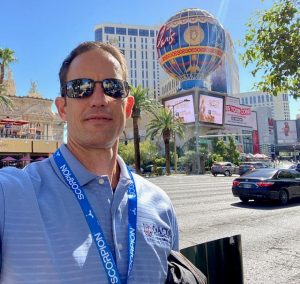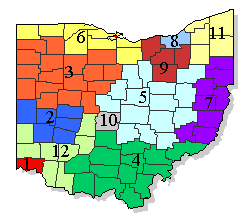 We are in favor of government measures to reduce impaired driving. We are not in favor of the government providing misleading reports to the public about those measures. In 2019, Utah introduced a measure to reduce impaired driving: it lowered the ‘legal limit’ for driving with a blood alcohol concentration (BAC) from .08 to .05. A recent press release from NHTSA (the National Highway Traffic Safety Administration) reports that traffic deaths in Utah decreased when the state lowered its ‘legal limit’ to .05. The press release is misleading.
We are in favor of government measures to reduce impaired driving. We are not in favor of the government providing misleading reports to the public about those measures. In 2019, Utah introduced a measure to reduce impaired driving: it lowered the ‘legal limit’ for driving with a blood alcohol concentration (BAC) from .08 to .05. A recent press release from NHTSA (the National Highway Traffic Safety Administration) reports that traffic deaths in Utah decreased when the state lowered its ‘legal limit’ to .05. The press release is misleading.
Articles Tagged with Ohio Drunk Driving
What Happens When an Out-of-State Driver Gets a DUI/OVI in Ohio?
 When I vacation in other states, people ask me where I’m from. When I say “Columbus”, I usually have to add “Ohio”. I have learned that very few people travel to Ohio for vacation. Some people do travel here for business and personal trips. Whether here for a business trip, a personal trip, or an improbable vacation, if a driver with a license issued by another state gets a DUI/OVI in Ohio, that person faces consequences in Ohio and may face consequences in the state which issued the driver’s license.
When I vacation in other states, people ask me where I’m from. When I say “Columbus”, I usually have to add “Ohio”. I have learned that very few people travel to Ohio for vacation. Some people do travel here for business and personal trips. Whether here for a business trip, a personal trip, or an improbable vacation, if a driver with a license issued by another state gets a DUI/OVI in Ohio, that person faces consequences in Ohio and may face consequences in the state which issued the driver’s license.
Autobahn Top-Speed Test: Reckless Driving?
 A driver may face up to two years in a German prison for driving at 257 mph on the Autobahn. Authorities allege he was driving carelessly at an inappropriate speed. In Ohio, we would call it reckless operation of a vehicle. But what constitutes reckless operation? Allegations of driving recklessly are sometimes made in the context of a DUI case (called ‘OVI’ in Ohio), and the issue of recklessness also arises in serious vehicular crimes, like Vehicular Homicide and Vehicular Assault. As our firm regularly deals with the element of recklessness, this speed-testing story piqued my interest. Continue Reading
A driver may face up to two years in a German prison for driving at 257 mph on the Autobahn. Authorities allege he was driving carelessly at an inappropriate speed. In Ohio, we would call it reckless operation of a vehicle. But what constitutes reckless operation? Allegations of driving recklessly are sometimes made in the context of a DUI case (called ‘OVI’ in Ohio), and the issue of recklessness also arises in serious vehicular crimes, like Vehicular Homicide and Vehicular Assault. As our firm regularly deals with the element of recklessness, this speed-testing story piqued my interest. Continue Reading
Nate Hobbs’ Case and Detentions for DUI / OVI investigations
 Although it is starting to look like it, this is not a blog about NFL players charged with DUI (called ‘OVI’ in Ohio). Recent articles discussed the cases of Henry Ruggs III and Geno Smith because those cases illustrated legal concepts related to DUI/OVI. The last article, about Geno Smith’s arrest, addressed what evidence indicates a driver may be under the influence before a traffic stop. In some DUI/OVI cases, traffic stops are not an issue, such as when the driver is in an accident or found passed-out behind the wheel. The legal concept at issue in those cases is when the driver is ‘seized’ and whether the seizure is legal. The case of Las Vegas Raiders cornerback Nate Hobbs illustrates that concept.
Although it is starting to look like it, this is not a blog about NFL players charged with DUI (called ‘OVI’ in Ohio). Recent articles discussed the cases of Henry Ruggs III and Geno Smith because those cases illustrated legal concepts related to DUI/OVI. The last article, about Geno Smith’s arrest, addressed what evidence indicates a driver may be under the influence before a traffic stop. In some DUI/OVI cases, traffic stops are not an issue, such as when the driver is in an accident or found passed-out behind the wheel. The legal concept at issue in those cases is when the driver is ‘seized’ and whether the seizure is legal. The case of Las Vegas Raiders cornerback Nate Hobbs illustrates that concept.
Geno Smith’s Case and Pre-Stop Evidence of DUI / OVI
 I heard a report that Geno Smith, quarterback for the Seattle Seahawks, was stopped for speeding and arrested on suspicion of DUI (called ‘OVI’ in Ohio). My first thought was, “speeding doesn’t sound like evidence of DUI”. It turns out Smith was allegedly going 96 mph in a 60 mph zone and driving erratically across several lanes of traffic (according to ESPN). That sounds more like evidence of DUI. Geno Smith’s case prompts the question: “what evidence, before a stop, indicates a driver may be under the influence?”
I heard a report that Geno Smith, quarterback for the Seattle Seahawks, was stopped for speeding and arrested on suspicion of DUI (called ‘OVI’ in Ohio). My first thought was, “speeding doesn’t sound like evidence of DUI”. It turns out Smith was allegedly going 96 mph in a 60 mph zone and driving erratically across several lanes of traffic (according to ESPN). That sounds more like evidence of DUI. Geno Smith’s case prompts the question: “what evidence, before a stop, indicates a driver may be under the influence?”
Brain Imaging to Detect Marijuana Intoxication
 Determining whether a driver is under the influence of marijuana is challenging. The standardized field sobriety tests used to predict alcohol levels are ineffective for marijuana intoxication. Levels of THC and its metabolites in blood and urine are not closely correlated with marijuana intoxication. So, how can law enforcement determine when THC is impairing a person’s ability to drive? Researchers are working on brain imaging technology which may offer a more reliable method for identifying impairment from marijuana intoxication.
Determining whether a driver is under the influence of marijuana is challenging. The standardized field sobriety tests used to predict alcohol levels are ineffective for marijuana intoxication. Levels of THC and its metabolites in blood and urine are not closely correlated with marijuana intoxication. So, how can law enforcement determine when THC is impairing a person’s ability to drive? Researchers are working on brain imaging technology which may offer a more reliable method for identifying impairment from marijuana intoxication.
Does Ohio’s Drugged Driving ‘Per Se’ Law Unconstitutionally Punish Status?
 When a person uses marijuana, the high from the THC last for about two hours, but the THC metabolites are detectable in the person’s urine for up to five weeks. Suppose a person smokes marijuana and a week later is pulled over and investigated for DUI (called ‘OVI’ in Ohio). If that person submits a urine sample and the urine test shows a prohibited level of marijuana metabolite, that person will be prosecuted for OVI because it is ‘per se’ illegal to operate a vehicle with a prohibited concentration of marijuana metabolites, even if the person’s driving is not impaired. Challenges to this ‘per se’ OVI law have been unsuccessful in Ohio courts. A recent case from the Ohio Supreme Court suggests the Court may be inclined to evaluate the constitutionality of the OVI ‘per se’ law for drugs.
When a person uses marijuana, the high from the THC last for about two hours, but the THC metabolites are detectable in the person’s urine for up to five weeks. Suppose a person smokes marijuana and a week later is pulled over and investigated for DUI (called ‘OVI’ in Ohio). If that person submits a urine sample and the urine test shows a prohibited level of marijuana metabolite, that person will be prosecuted for OVI because it is ‘per se’ illegal to operate a vehicle with a prohibited concentration of marijuana metabolites, even if the person’s driving is not impaired. Challenges to this ‘per se’ OVI law have been unsuccessful in Ohio courts. A recent case from the Ohio Supreme Court suggests the Court may be inclined to evaluate the constitutionality of the OVI ‘per se’ law for drugs.
Top Shelf DUI Defenses Served In Las Vegas
 After being canceled in 2020 due to some global pandemic, the annual DUI seminar in Las Vegas resumed in October of 2021. This year’s theme was ‘Top Shelf DUI Defenses’. The National College for DUI Defense (NCDD) and the National Association of Criminal Defense Lawyers (NACDL) assembled a marvelous menu of superb speakers. The seminar really was top shelf.
After being canceled in 2020 due to some global pandemic, the annual DUI seminar in Las Vegas resumed in October of 2021. This year’s theme was ‘Top Shelf DUI Defenses’. The National College for DUI Defense (NCDD) and the National Association of Criminal Defense Lawyers (NACDL) assembled a marvelous menu of superb speakers. The seminar really was top shelf.
A Tale of Two Cities: Destroyed Evidence in Ohio DUI / OVI Cases
 In a DUI case (called ‘OVI’ in Ohio), what happens when evidence is destroyed because a prosecutor does not timely respond to a specific request for that evidence? It depends on the jurisdiction. In ten of Ohio’s 12 appellate districts, the case would likely be dismissed. In the other two Ohio appellate districts, there would likely be no sanction. Two appellate cases from two Ohio cities illustrate the outcome depends, in large part, on where the case is heard.
In a DUI case (called ‘OVI’ in Ohio), what happens when evidence is destroyed because a prosecutor does not timely respond to a specific request for that evidence? It depends on the jurisdiction. In ten of Ohio’s 12 appellate districts, the case would likely be dismissed. In the other two Ohio appellate districts, there would likely be no sanction. Two appellate cases from two Ohio cities illustrate the outcome depends, in large part, on where the case is heard.
Should Ohio Have Police Draw Blood For DUI / OVI Cases?
 Police officers in Georgia are being trained to draw blood from drivers suspected of DUI (called ‘OVI’ in Ohio). Typically, a person arrested for OVI in Ohio is taken to a police station for a breath test or urine test. Occasionally, an OVI suspect is taken to a hospital for a blood test. In Georgia, DUI suspects will now have their blood drawn by police officers. Could we soon have police officers drawing blood from OVI suspects in Ohio?
Police officers in Georgia are being trained to draw blood from drivers suspected of DUI (called ‘OVI’ in Ohio). Typically, a person arrested for OVI in Ohio is taken to a police station for a breath test or urine test. Occasionally, an OVI suspect is taken to a hospital for a blood test. In Georgia, DUI suspects will now have their blood drawn by police officers. Could we soon have police officers drawing blood from OVI suspects in Ohio?
 Columbus OVI/DUI Attorney Blog
Columbus OVI/DUI Attorney Blog

